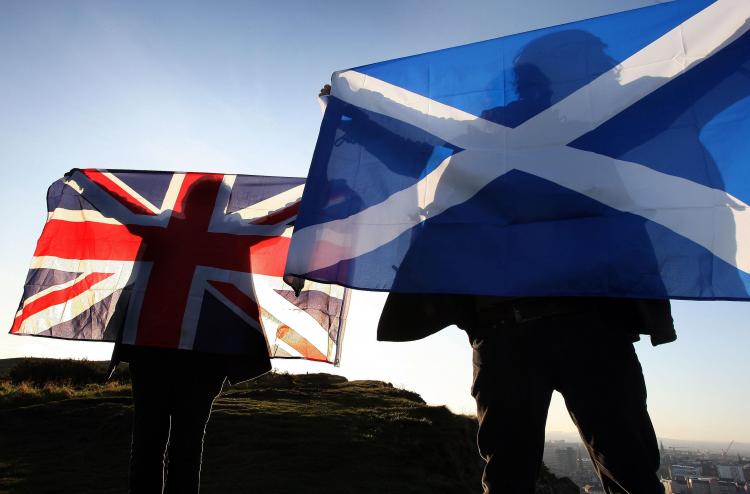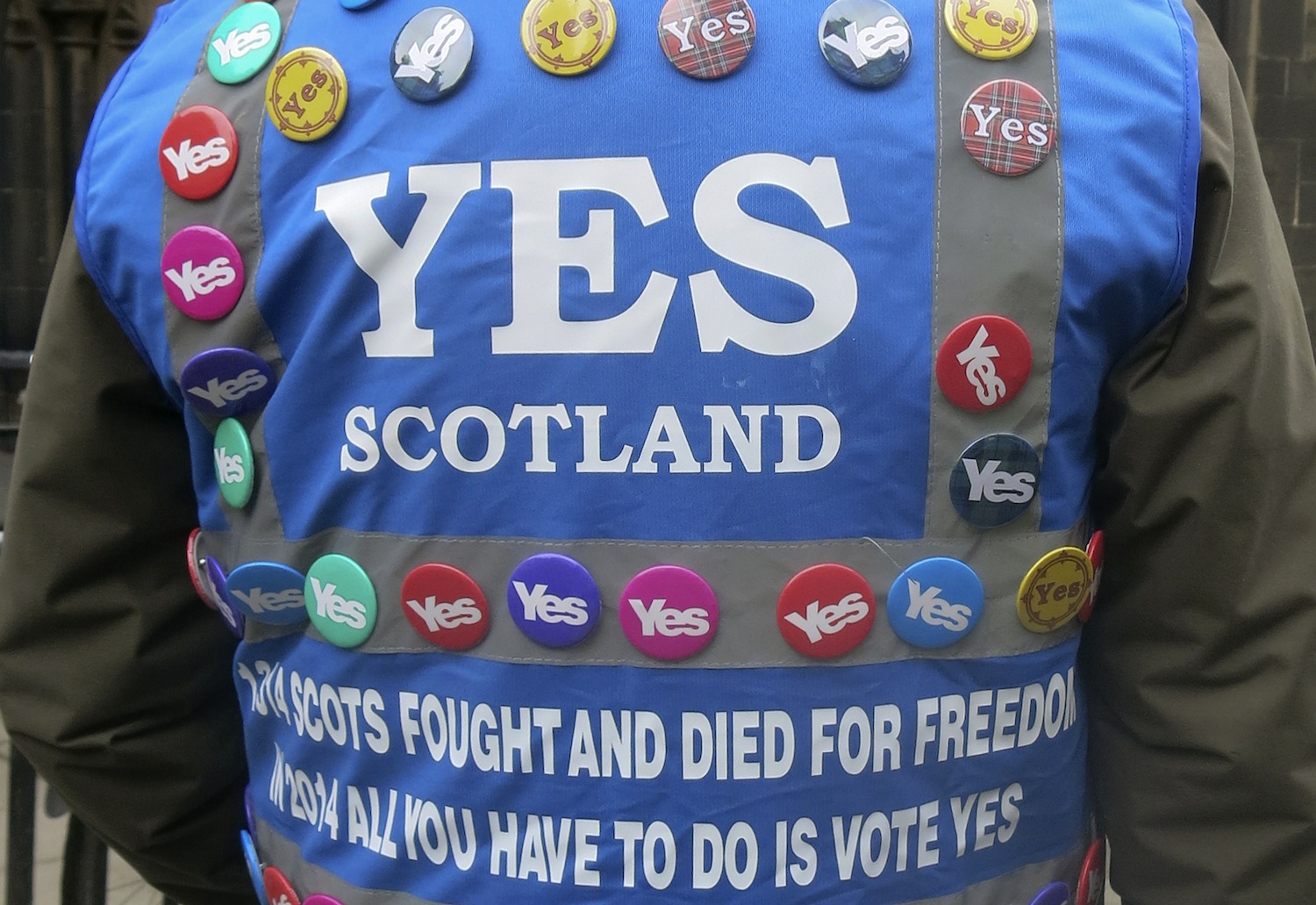Sep 28th, 2015, 05:04 PM
Scotland Independence: Time For Round Two

Two men wave a Union Jack and Saltire flags in Edinburgh, Scotland. (AAP)
“Where is the coward that would not dare to fight for such a land as Scotland?”
–Sir Walter Scott
There were many cowards in Scotland last September, when 55 percent of voters cast ballots against their own independence and in favor of continued subjugation under Westminster.
This vote didn’t come out of nowhere, the process of politically ceding control of Scotland away from the UK has been going for almost a century. It began with the formation of the Scottish National Party (SNP) in 1934. Over the 20th century, the party grew its base and eventually culminated in the Scotland Act of 1998, which established a Scottish Parliament and Administration that allowed some issues concerning only Scotland to be handled by themselves and not go through the English dominated UK parliament. This process, known as “Devolution”, continues with the SNP's ultimate goal to have total independence from the United Kingdom. Unfortunately, this was voted down by the Scottish people one year ago, but for many, independence is eventually attainable and inevitable.
Forming as the Kingdom of Alba in the 9th century, Scotland has a long, proud history of individualism. It wasn’t until 1707 that Scotland and England joined to create the Kingdom of Great Britain, mostly out of necessity on the Scots’ part after the catastrophic blow the failed Darien Scheme had to their economy. However, throughout her history, the Scots have been an individualistic people and leader in intellectual contributions to the world, fighting many times over that 800 years to maintain its place as an independent kingdom.
(Photo: Getty)
“Nous nous tournons vers l’Écosse pour trouver toutes nos idées sur la civilisation."
(“We look to Scotland for all our ideas of civilization.”)
-Voltaire
With the Scottish Reformation's emphasis on humanism and literacy, one of the first nation-wide public education systems was established in the 15th century. By the 18th century, as one of the most literate and educated societies of the time, the Scottish Enlightenment emerged as a leading powerhouse of revolutionary new ideas in the areas of philosophy, economics, literature, sociology, mathematics, science, and medicine. Only the French enlightenment can compare in terms of global influence.
Scottish contributions to modern society include, briefly, the telephone, television, refrigerator, flush toilet, pedal bicycle, and, perhaps most importantly, scotch whisky. However, I highly recommend going through this fuller list just to get the gravity of the impact this small nation has had on the world.
"In 1314, Scots fought and died for freedom. In 2014, all you have to do is vote YES" (AP Photo/Jill Lawlless)
“Of all the small nations of this earth, perhaps only the ancient Greeks surpass the Scots in their contribution to mankind.”
-Winston Churchill
So how is it that a country which has given such a disproportionately large amount to the advancement of the world, view itself as incapable of being once again independent? In a word, fear. Many think that without the economic resources and geo-political position of the United Kingdom, Scotland would collapse into a state of squalor and obscurity.
This just isn’t true though. If Scotland became independent tomorrow, it would automatically be one of the richest countries in the world based on GDP per capita, ahead of the UK, France, and China. The central reason for independence, though, is simply that Scotland and the rest of the UK have wildly different priorities. They are very different peoples with different goals for what they want their country and place in the world to be.
With independence, Scotland would able to form a social welfare system more suited to their needs, create a less imperialistic military and foreign policy, get the controversial Trident nuclear submarine fleet out of it’s borders, not get pulled into absurd, illegal wars (see: Iraq), control the revenue from the North Sea oil reserves, and loosen their restrictive immigration policy.
Most importantly, though, they would be able to regain the sense of individuality and pride that they practically invented.
A recent poll showed that if another referendum were held today, most Scots would vote "Yes". With all the dramatic changes occurring in British politics lately, the chance for another vote could be sooner than previously thought. Nicola Sturgeon, the Scottish First Minister and leader of the SNP, has stated that a timetable and parameters for having a second vote would be included in the party’s platform for next year’s elections.
It is looking more and more hopeful that a second vote for independence will occur in the next 5 to ten years, and if it does, given the continually souring public sentiment towards their Southern border, would result in a yes vote. If this occurs, I wouldn’t be so concerned about Scotland’s future, I’d worry about the UK’s.
"God help England if she had no Scots to think for her."
- George Bernard Shaw
- George Bernard Shaw









